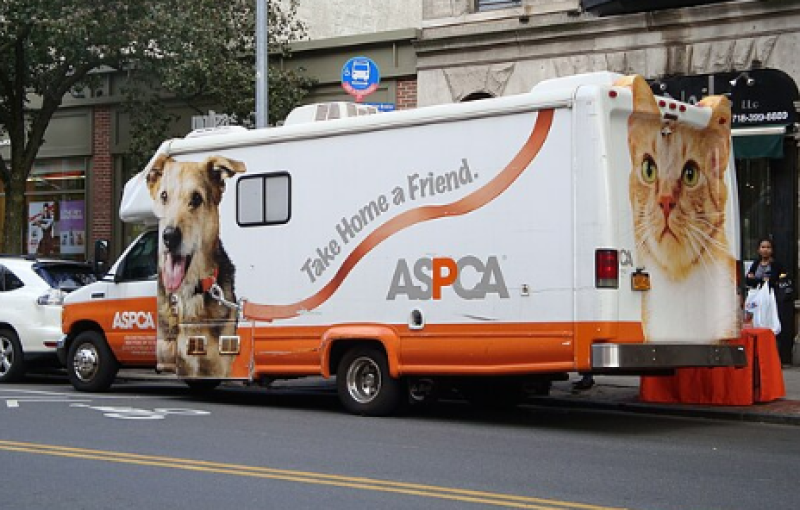
Dogs Get Neglected, Cats Get Hurt: What a Massive NYC Study Tells Us About Animal Cruelty (and What Pet Owners Can Do About It)
by Jon Scaccia April 10, 2025If you’re like most pet lovers, just thinking about animal cruelty makes your heart ache (or your blood boil). But here’s something most people don’t know: neglect—not violent abuse—is the most common form of cruelty. And when cats do show up in cruelty cases, it’s usually bad. Really bad.
A 9-year study by the ASPCA and NYPD looked at nearly 2,800 animal cruelty reports involving over 5,700 animals. The findings? Jaw-dropping, heartbreaking—and a powerful call to action for every pet parent.
Let’s break down what the science says and how YOU can be part of the solution.
🚨 The Topline Takeaway: Dogs Get Neglected, Cats Get Abused
From 2013 to 2022, here’s what the data revealed:
- 82% of cases involved dogs—most commonly neglected (not fed, watered, or cared for properly).
- 15% involved cats—and more than half were suspected to be victims of non-accidental injury (yep, intentional harm).
- Neglect made up 58% of all cases, while intentional violence (like hitting or throwing) came next at 43%.
- Cases were reported across every NYC precinct. Cruelty knows no zip code.
Think your neighborhood is too nice for this to happen? Think again.
Why Cats Might Be Suffering in Silence
Here’s where things get even more upsetting. While dogs show up in cruelty reports way more often, cats may be under-reported victims.
Why?
- Cats hide injuries better. When something’s wrong, they often disappear instead of seeking help.
- They’re more likely to roam, especially outdoor or stray cats, making cruelty harder to detect.
- People take cats to the vet less often than dogs (ouch, but true).
- Cats are smaller and more vulnerable, especially in homes where violence already exists.
📊 One chilling stat: Cats in cruelty cases were more likely to be dead on arrival than dogs.
The Most Common Form of Cruelty? It’s Not What You Think
Forget the villain twirling his mustache while hurting animals. The most common cruelty? Neglect.
That means:
- No food or clean water.
- Being left outside in brutal weather.
- No vet care for visible wounds or illness.
- Filthy conditions with no escape.
👉 Think of it this way: neglect is like a slow, invisible kind of abuse—and it can cause just as much suffering.
3 Simple Ways You Can Fight Animal Cruelty (Yes, You!)
We get it—you’re busy. But helping stop cruelty doesn’t require a cape. Here’s how you can make a real difference:
1. Keep Your Eyes Open
Notice a neighbor’s dog left outside 24/7 with no shelter? A cat limping and skinny on your street? Say something.
📱 In NYC, call 311 or 911 to report suspected cruelty. Other cities have similar hotlines.
2. Use Your Vet Visit as a Check-In
If you’re a pet parent, your vet visits aren’t just for shots—they’re a chance to make sure your pet’s environment is safe and stress-free.
🐾 Ask your vet: “Anything I should be doing differently at home?”
3. Spread the Word
Most people don’t realize that neglect is the big issue—or that cats are at high risk for abuse.
📢 Share this post. Talk to friends. Advocate for better reporting systems in your community.
When a Dog Has No Food, or a Cat Is Abused—Who Steps In?
The ASPCA-NYPD partnership is a model for how law enforcement and animal welfare groups can work together. Cops respond to cruelty calls, and the ASPCA provides vet care, shelter, legal support, and even rehoming.
But here’s the truth: they can’t do it alone.
Shelters need more resources. Vets need better training. The public needs to know what to look for—and how to report it.
Real Talk: We Love Pets Like Family. Let’s Protect Them Like It.
Neglect and abuse don’t just happen in some “other” neighborhood. They can happen anywhere, anytime. But every report, every alert neighbor, every informed vet tech makes a difference.
Because when one pet suffers, we all lose a little bit of the compassion that makes us human.
❤️ Share Your Pet’s Story
Have you ever reported suspected animal cruelty? Do you work or volunteer at a shelter or vet clinic?
Tell us your story in the comments!
Or answer this:
🐾 What’s one small way you help protect animals in your community?
Want More Science-Backed Pet Tips?
Subscribe to This Week in Pet Health—we break down the latest research into quick tips you can actually use.
🐶🐱 Because science should work for all pets.
Leave a Reply